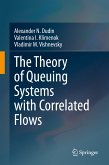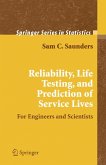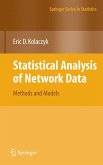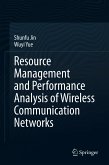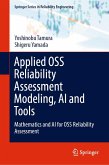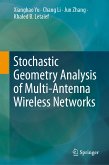Vladimir Vishnevsky is the Head of Telecommunication Networks Laboratory, the V. A. Trapeznikov Institute of Control Sciences of Russian Academy of Sciences (ICS RAS), Moscow, Russia. Earlier, he was Vice-Director of the Institute of Information Transmission Problems of RAS (from 1990-2010) and the Head of the Laboratory with ICS RAS (from 1971-1990). He became Full Professor at the ICS RAS in 1989, and at the Moscow Institute of Physics and Technology in 1990.
He is Senior Member of the IEEE Communication Society, Chair of the Communications Society Chapter (COM19) of the IEEE Russia Section, member of the International Telecommunications Academy, and the New York Academy of Science. He received an engineering degree in Applied Mathematics from the Moscow Institute of Electronics and Mathematics, Russia, in 1971; a Ph.D. degree in queuing theory and telecommunication networks; and a D.Sc. degree in telecommunication networks from ICS RAS, in 1974 and 1988, respectively. Author of more than 400 papers in queuing theory and telecommunications, 12 books, and 20 patents for inventions, his research interests lie in the areas of computer systems and networks, queuing systems, telecommunications, discrete mathematics (extremal graph theory, mathematical programming), and wireless information transmission networks.
Professor Vishnevsky is General Chair of the International Conference on Distributed Computer and Communication Networks: Control, Computation, Communications and member of the Program Committee of several international conferences such as the International Congress on Ultra-Modern Telecommunications and Control Systems and Advances in Wireless and Optical Communications. He is also on the editorial board of several peer-reviewed journals such as the Automation and Remote Control, Advances in Systems Science and Applications, and Control Sciences. He is Project Leader of several international research projects related to the research and development of the next-generation networks by using tethered high-altitude unmanned platforms. In 2019, he was awarded the Honored Scientist of the Russian Federation by the President of the Russian Federation.
Dharmaraja Selvamuthu is Professor and Head of the Department of Mathematics, the Indian Institute of Technology Delhi, New Delhi, India, since September 2020. He joined the institute in 2003. He is also Joint Faculty at the Bharti School of Telecommunication Technology and Management, since 2013. He is appointed as Jaswinder and Tarvinder Chadha Chair Professor for teaching and research in the areas of operations research (from 2010-2015). He earned his B.Sc. degree in Mathematics from Presidency College, Chennai, in 1992; M.Sc. degree in Applied Mathematics from Anna University, College of Engineering, Guindy, Chennai, in 1994; and Ph.D. degree in Mathematics from the Indian Institute of Technology Madras,Chennai, in 1999. From 1999 to 2002, he was Post-doctoral Fellow at the Department of Electrical and Computer Engineering, Duke University, USA. From 2002 to 2003, he was Research Associate at the TRLabs, Winnipeg, Canada.
Vladimir Rykov is Full Professor at the Applied Mathematics and Computer Modeling Department of the Gubkin Russian State Oil and Gas University. He also is Full Professor at the Department of Probability Theory and Cyber Security, RUDN University, Russia, since 1990. He earned his D.Sc. degree in Physics and Mathematics from Moscow State University, in 1990. His main research interests include controllable queueing systems and reliability theory.
Professor Rykov has been associated with Moscow Mathematical Society (Probability Theory Section), since 1968; Russian Actuarial Society, since 1995; Kappa Mu Epsilon; National Mathematics Honor Society; and Michigan Epsilon Chapter, since 2001. From 2001-2003, he wasGuest Professor at the Mathematical Statistics Department of the Mathematics and Science Faculty of the Kettering University, Flint, USA. He is Full Member of the International Academy of Informatization, since 1994; Gnedenko-Forum, the international group of experts on reliability and mathematical statistics; and the International Academy of Informatization. He is Editor-in-Chief of the Reliability: Theory and Applications journal and on the editorial board of several other peer-reviewed journals. Professor Rykov is also a program committee member of many international conferences such as Distributed Computer and Communication Networks, International Conference on Stochastic Methods, Mathematical Methods in Reliability, and others.
Dmitry Kozyrev is Senior Research Fellow at the Telecommunication Networks Laboratory of V.A. Trapeznikov Institute of Control Sciences of the Russian Academy of Sciences (ICS RAS), Moscow, Russia. He also is Associate Professor at the Department of Probability Theory and Cyber Security, RUDN University, Russia. He is former Vice-Director of the Institute of Applied Mathematics and Communications Technology, RUDN University, Russia, from 2017-2019. Earlier, he was Associate Professor at the Department of Applied Probability and Informatics, RUDN University, from 2007-2013. He earned his B.Sc. degree in Mathematics, in 2005; M.Sc. degree in Applied Mathematics and Informatics from People's Friendship University of Russia, RUDN University, in 2007; and Ph.D. degree in Physics and Mathematics, in 2013. His research interests are in applied probability, stochastic modeling and simulation of redundant systems, reliability assessment and performance analysis, sensitivity analysis, and the Internet of Things.
Author and coauthor of more than 100 scientific works, including 3 university textbooks and 1 research monograph, Dr. Kozyrev has served as Editor for several peer-reviewed journals: Automation and Remote Control, Reliability: Theory and Applications, MDPI Entropy, MDPI Mathematics, MDPI Symmetry, Control Sciences, Discrete and Continuous Models, and Applied Computational Science. He is editor of the proceedings of DCCN selected extended papers published by Springer in the Lecture Notes in Computer Science (2019-2023) series and Communications in Computer and Information Science (2013-2023) series. He is also member of the organizing committee and technical program committee of several international conferences: Distributed Computer and Communication Networks, International Congress on Ultra-Modern Telecommunications and Control Systems, International Conference on Stochastic Methods, and Mathematical Methods in Reliability.
Nika Ivanova is Scientific Researcher at V. A. Trapeznikov Institute of Control Sciences of Russian Academy of Sciences. She received her B.Sc. degree in Business Informatics, in 2017; M.Sc. degree in Applied Mathematics and Informatics from People's Friendship University of Russia, RUDN University, in 2019; and Ph.D. degree in Physics and Mathematics, in 2023. In 2021, she received a scholarship from the Government of the Russian Federation and, in 2022, a scholarship from the President of the Russian Federation. With more than 15 papers to her credit, her current research interests include applied probability, queuing theory, reliability theory, modeling and simulation, sensitivity analysis, and machine learning.
Achyutha Krishnamoorthy is Emeritus Fellow of the University Grants Commission, the Government of India, at the Cochin University of Science & Technology (CUSAT), Kerala, India, in 2017. Earlier, he was Honorary Director of the Centre for Research in Mathematics, at CMS College, Kottayam, in 2016. He was Emeritus Scientist of the Kerala State Council for Science, Technology and Environment at the CUSAT, from 2013-2016. He had been Professor at the Department of Applied Mathematics in CUSAT, from 1978-2009. He received his undergraduate degree in Physics (1969) from the University of Kerala, a master's degree in Mathematics from Jabalpur University (1971), and a doctoral degree in Mathematics from Annamalai University (1978).





![The Theory of Queuing Systems with Correlated Flows (eBook, PDF) The Theory of Queuing Systems with Correlated Flows (eBook, PDF)]() Alexander N. DudinThe Theory of Queuing Systems with Correlated Flows (eBook, PDF)73,95 €
Alexander N. DudinThe Theory of Queuing Systems with Correlated Flows (eBook, PDF)73,95 €![Reliability, Life Testing and the Prediction of Service Lives (eBook, PDF) Reliability, Life Testing and the Prediction of Service Lives (eBook, PDF)]() Sam C. SaundersReliability, Life Testing and the Prediction of Service Lives (eBook, PDF)113,95 €
Sam C. SaundersReliability, Life Testing and the Prediction of Service Lives (eBook, PDF)113,95 €![Statistical Analysis of Network Data (eBook, PDF) Statistical Analysis of Network Data (eBook, PDF)]() Eric D. KolaczykStatistical Analysis of Network Data (eBook, PDF)81,95 €
Eric D. KolaczykStatistical Analysis of Network Data (eBook, PDF)81,95 €![Resource Management and Performance Analysis of Wireless Communication Networks (eBook, PDF) Resource Management and Performance Analysis of Wireless Communication Networks (eBook, PDF)]() Shunfu JinResource Management and Performance Analysis of Wireless Communication Networks (eBook, PDF)129,95 €
Shunfu JinResource Management and Performance Analysis of Wireless Communication Networks (eBook, PDF)129,95 €![Applied OSS Reliability Assessment Modeling, AI and Tools (eBook, PDF) Applied OSS Reliability Assessment Modeling, AI and Tools (eBook, PDF)]() Yoshinobu TamuraApplied OSS Reliability Assessment Modeling, AI and Tools (eBook, PDF)53,95 €
Yoshinobu TamuraApplied OSS Reliability Assessment Modeling, AI and Tools (eBook, PDF)53,95 €![Service Oriented Infrastructures and Cloud Service Platforms for the Enterprise (eBook, PDF) Service Oriented Infrastructures and Cloud Service Platforms for the Enterprise (eBook, PDF)]() Service Oriented Infrastructures and Cloud Service Platforms for the Enterprise (eBook, PDF)73,95 €
Service Oriented Infrastructures and Cloud Service Platforms for the Enterprise (eBook, PDF)73,95 €![Stochastic Geometry Analysis of Multi-Antenna Wireless Networks (eBook, PDF) Stochastic Geometry Analysis of Multi-Antenna Wireless Networks (eBook, PDF)]() Xianghao YuStochastic Geometry Analysis of Multi-Antenna Wireless Networks (eBook, PDF)73,95 €
Xianghao YuStochastic Geometry Analysis of Multi-Antenna Wireless Networks (eBook, PDF)73,95 €
